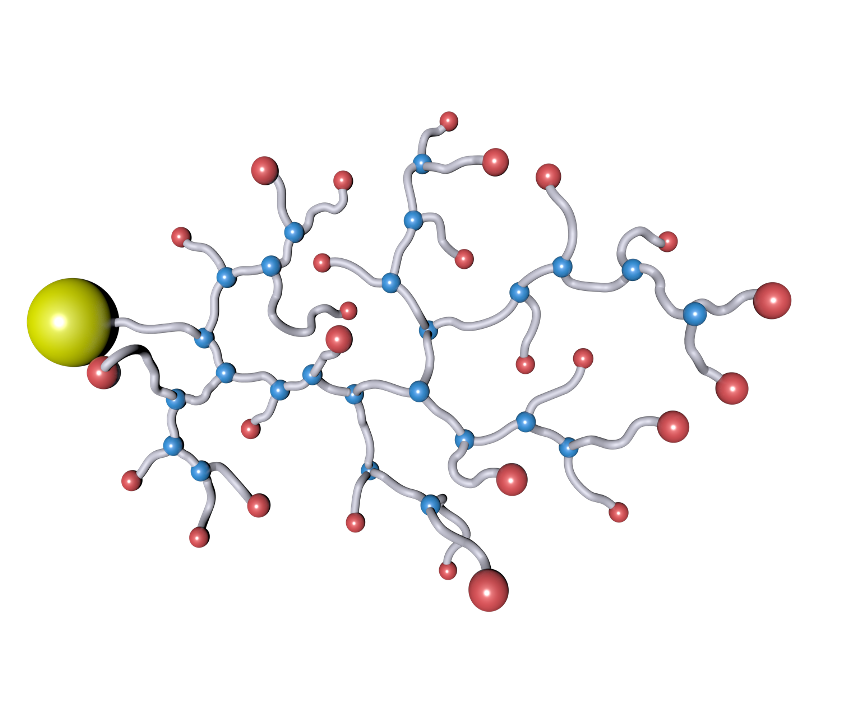Recycling Polymers: Advertising a Circular Economy
Recycling Polymers: Advertising a Circular Economy
Blog Article
Making The Most Of the Potential of Polymers: Discover the Complex Benefits and Practical Uses
The multifaceted benefits and functional uses of polymers continue to evolve, supplying innovative options to complex difficulties. By exploring just how polymers can improve item durability, drive sustainability campaigns, transform medical care services, and lead the means for future technical developments, we can discover a world of opportunities waiting to be harnessed.
Importance of Polymers in Modern Industries
Polymers play a pivotal duty in contemporary industries, offering as versatile materials that drive innovation and performance across a wide variety of industries. These complex particles, composed of duplicated subunits, have changed industries such as vehicle, aerospace, electronics, medical care, and much more. In the automotive sector, polymers have actually enabled the development of lightweight yet durable parts, enhancing gas performance and general performance. Aerospace industries count on polymers for their high strength-to-weight proportion, crucial for airplane and spacecraft building and construction. The electronic devices sector gain from the insulating residential or commercial properties of polymers, crucial for making circuit boards and electronic tools (Polymers). Furthermore, polymers are extensively used in the healthcare market for medication shipment systems, medical tools, and biocompatible materials. Their adaptability, durability, and cost-effectiveness make polymers indispensable in contemporary manufacturing processes, promoting innovations and driving progress in different industries worldwide. Accepting the potential of polymers is essential to unlocking more developments and addressing the advancing needs these days's industrial landscape.
Enhancing Item Toughness With Polymers
With a concentrate on long life and resilience, integrating innovative polymer technologies into item style has actually ended up being a cornerstone of improving durability in modern-day manufacturing procedures. Polymers provide a broad range of buildings that add to the total durability of products. One key benefit is their resistance to corrosion, chemicals, and weathering, making them suitable for use in different industries where exposure to severe problems is usual.
In addition, polymers can be customized to meet particular toughness needs, allowing producers to tailor products according to their planned usage and expected life-span. By incorporating polymers right into product parts, suppliers can improve stamina and impact resistance, minimizing the possibility of breakage or wear in time.
Furthermore, polymers are lightweight yet sturdy, offering sturdiness without adding unnecessary weight to products. This particular is specifically advantageous in markets such as aerospace and automobile, where lightweight materials are crucial for boosting fuel efficiency and total efficiency.
Sustainability Improvements Via Polymer Advancement
In the world of modern-day manufacturing and product style, the cutting-edge application of polymers is driving considerable developments in sustainability techniques. Polymer innovation plays an essential duty in enhancing sustainability by using remedies that lower ecological influence throughout various sectors. One key aspect where polymers succeed is in making it possible for the advancement of light-weight yet sturdy products that add to sustain performance in transportation and lower general power usage. In addition, the recyclability and biodegradability of particular polymers even more promote lasting practices by decreasing waste and pollution.
Additionally, improvements in polymer technology have brought about the creation of bio-based and eco-friendly polymers, stemmed from natural resources such as plants, that use an even more sustainable choice to conventional petroleum-based plastics. These environmentally friendly polymers not only navigate to this site help decrease dependence on nonrenewable fuel sources but additionally reduce greenhouse gas discharges during production. By integrating these innovative polymers into making procedures, companies can reduce their environmental impact and move towards even more lasting practices, aligning with global efforts to combat climate modification and advertise a circular economic situation.
Polymers in Medical Care: Revolutionizing Medical Solutions

Among the key areas where polymers are making considerable strides is in the development of targeted drug shipment systems. By enveloping medicines within polymeric nanoparticles or micelles, scientists can boost medication security, improve bioavailability, and allow regulated release, leading to more pop over to this site effective therapy programs with reduced adverse effects.
Additionally, polymers are critical in the field of regenerative medicine, where they are made use of to create scaffolds that mimic the extracellular matrix, offering support for cell development and tissue regeneration. This technology holds enormous pledge for fixing harmed organs, promoting wound recovery, and advancing customized medicine techniques.
Fundamentally, the combination of polymers in health care is driving development, enhancing treatment efficacy, and eventually enhancing patient results in methods formerly believed unattainable.
Future Applications and Technologies in Polymer Modern Technology
Progressing at the leading edge of scientific exploration, polymer technology continues to lead the method for groundbreaking applications and innovations forming diverse markets. Furthermore, polymer nanocomposites are improving the mechanical and thermal residential properties of materials, leading to stronger and lighter elements in aerospace and auto markets. Looking in advance, researchers are exploring the possibility of shape-memory polymers for applications in robotics and biomedical gadgets, where products that can "keep in mind" and go back to their initial forms offer amazing possibilities for development.
Verdict

Report this page